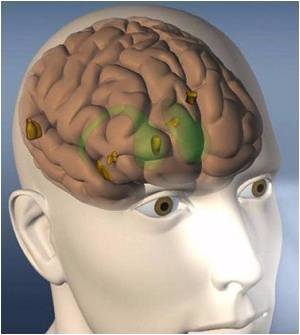Some information about how sex hormones control masculinization of the brain during development and drive gender related behaviors in adult males has been uncovered in a new study.

Testosterone and estrogen are thought to play an essential role in organizing and activating gender-specific patterns of behavior in sexually reproducing animals.
Testosterone is produced by the testes and directly activates the androgen receptor (AR) in target tissues such as muscle. Estrogen is produced by the ovaries and is nearly undetectable in the circulation of males of most species. However, circulating testosterone in males can be converted into estrogen in the brain, and this testosterone-derived estrogen has been shown to control many male behaviors.
"It was known that testosterone and estrogen are essential for typical male behaviors in many vertebrate species," explains the study's senior author, Dr. Nirao M. Shah from the Department of Anatomy at the University of California, San Francisco. "However, how these two hormones interact to control masculinization of the brain and behavior remained to be established."
Dr. Shah and colleagues found that during the neonatal testosterone surge there is very little AR expressed in the developing brain, making it unlikely that testosterone signaling via AR plays a major role in masculinizing neural pathways. Importantly, they went on to show that the male pattern of AR expression in the brain was dependent on testosterone-derived estrogen signaling.
The researchers then used a genetic approach to knock out the AR in the mouse nervous system and observed that these mutants still exhibited male type mating, fighting, and territorial marking behaviors. However, these mutant males had striking reductions in specific components of these masculine behaviors. These results show that testosterone signaling via AR does not control masculine differentiation of the brain and behavior but regulates the frequency and extent of male typical behaviors.
"Our findings in conjunction with previous work suggest a model for the control of male pattern behaviors in which estrogen masculinizes the neural circuits for mating, fighting, and territory marking, and testosterone and estrogen signaling generate the male typical levels of these behaviors," concludes Dr. Shah. "It will be interesting in future studies to identify the molecular and circuit level mechanisms that are controlled by these hormones."
Source-ANI
RAS
 MEDINDIA
MEDINDIA



 Email
Email









